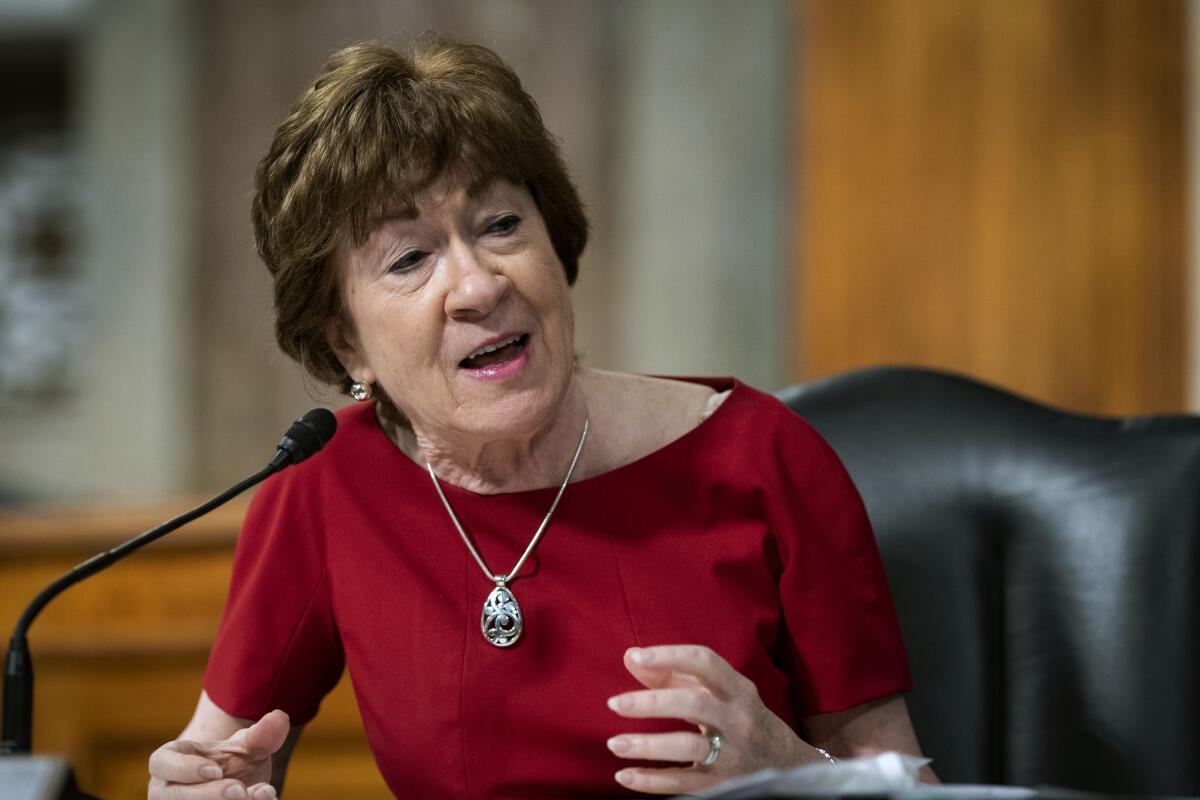Unity on COVID relief doesn’t mean caving to Republican demands

- Share via
President Biden has called on Congress to move quickly to address a host of pressing needs related to the COVID-19 pandemic, including the slow pace of vaccinations, sharp declines in employment and income, the threat of bankruptcy for many businesses, a looming wave of evictions and foreclosures, and the need to reopen schools and colleges safely. He’s proposed a bill to address all of those issues and more; its price tag is enormous: $1.9 trillion, which is more than 40% of the entire federal budget in the last pre-pandemic fiscal year.
Ten Senate Republicans have countered with a considerably more modest proposal that would spend less and do less. Their $618-billion plan, which they discussed with Biden at the White House on Monday evening, would provide money for COVID-19 testing and vaccinations, unemployment benefits, struggling small businesses, schools and childcare, as well as smaller direct cash payments than Biden proposes to American households.
This should be a straightforward negotiation, with the gap in the dollar figures narrowed by the two sides’ overlapping concerns about the enduring pandemic. Although less ambitious in scope, the Republicans’ bill could be viewed as a first installment on Biden’s plan. If lawmakers are acting in good faith, that sort of fiscal prudence would be welcome.
But Democrats learned a different lesson from 2009, when President Obama and then-Vice President Biden took office in the midst of a deep recession that threatened to become a depression. Back then, almost every Republican opposed a badly needed $800-billion stimulus bill and, after that, blocked seemingly every proposal aimed at boosting the economy, thus prolonging the painfully slow recovery. With that in mind, top congressional Democrats started the ball rolling Monday on a budget reconciliation bill that could enact the entire Biden COVID relief package without a single Republican vote.
We’d like to see the two sides compromise on a short-term deal that provides relief now without breaking the bank or foreclosing the possibility of more aid if the pandemic lingers and unemployment remains high. But we are more concerned about repeating the mistakes of the last recession than about borrowing too heavily now, and we need to see more evidence of good faith in these talks. A good start would be for Republicans to recognize how badly state and local budgets are hurting, and for Democrats to accept better targeting of federal dollars to people who need them the most.
It’s not a unifying move for Democrats to start the reconciliation process before there’s been any formal negotiations on the relief package. But Republicans have been pounding Biden since the inauguration for signing a succession of executive orders that reverse actions by President Trump, which they claim contradicts the new president’s rhetoric about wanting to unite the country. To them, it seems, unity means following whatever path the GOP dictates. That’s denying the reality of elections and cheapening the meaning of bipartisanship.
More to Read
A cure for the common opinion
Get thought-provoking perspectives with our weekly newsletter.
You may occasionally receive promotional content from the Los Angeles Times.









